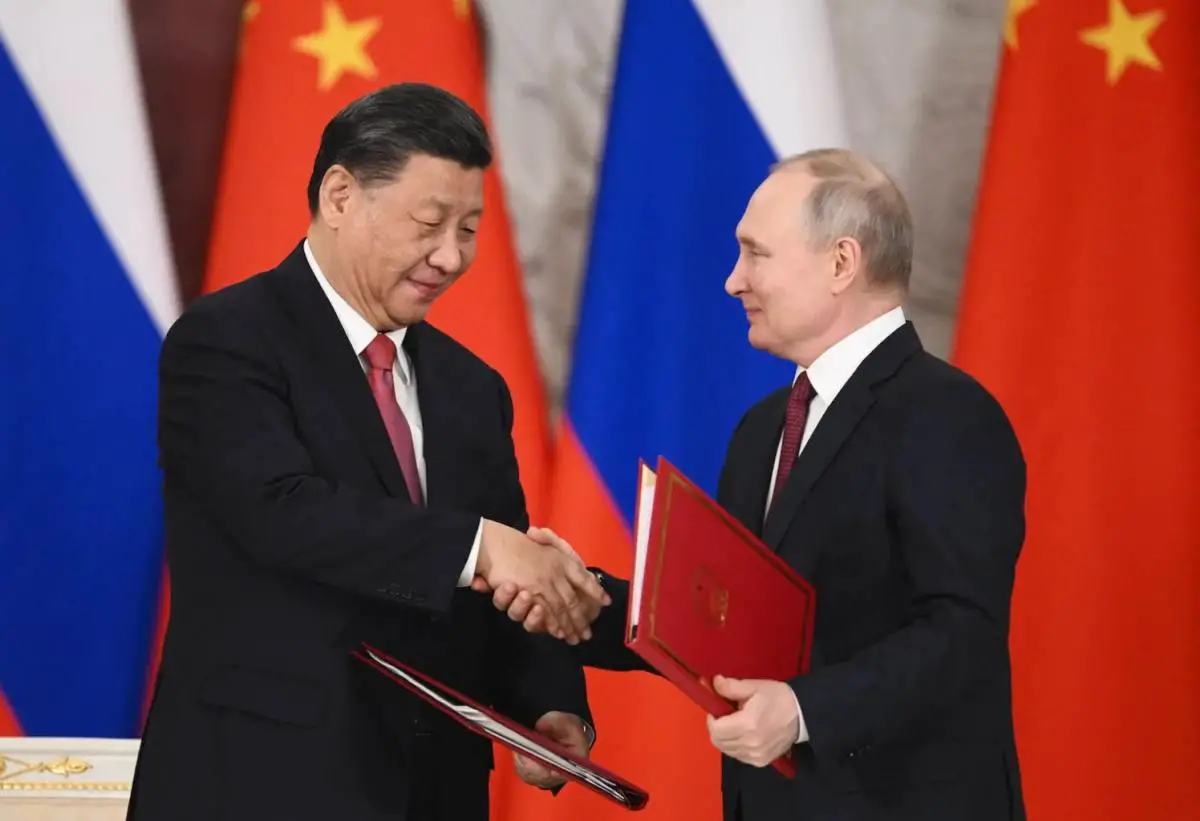The West has worried that China might join the attack on Ukraine. That’s bolstered by China’s claim to have a “limitless” friendship with Russia, and the fact that China parrots Russian propaganda about Ukraine and the West. And, of course, for those old enough to remember, UN forces (led by the US) very nearly wiped out North Korea—until China joined the battle. In short order, the Chinese “hordes” pushed UN forces almost completely off the peninsula. It was such a dire situation that Gen. Douglas McArthur requested the right to use the nuclear bomb (America was the only country with “the bomb” in 1950).
We don’t have that advantage these days. In fact, there is a growing movement among countries, including China, Russia, India, Brazil and South Africa [“BRICS”] to counter America’s “hegemony” in financial matters and political influence. So many people consider Russia and China as a united front against Western goals. That’s true, but only to an extent, and an interesting article from Business Insider suggests that the “partnership” between Russia and China is less and less equal, with Russia becoming a “vassal state.” A satellite of China.
That would explain why China has not given Russia the arms it needs, and has not sent thousands (or millions) of “volunteers” into the fighting. China is mostly sitting on the sidelines, watching Russia destroy itself.
China is trying to portray itself as neutral, and is trying to position itself to moderate an agreement between Russia and Ukraine, just as it produced the surprising rapprochement between Saudi Arabia and Iran. The US couldn’t have done that. Since 1979, we have portrayed Iran as the ultimate evil in the world. China pulled it off, because they are heavy trading partners with both sides.
The agreement is seen as amazing and surprising as Nixon’s “triangulation” with both China and Russia in the 1970s.
The Business Insider article says that China is watching with glee as Russia “implodes,” because Russia was just a complication in their direct competition with America. Also, as Russia’s international influence shrinks, China’s expands, especially in Asia, Africa, and South America.
Russia’s standing as a world power has deteriorated since its invasion of Ukraine began, and that presents an opportunity for China to take advantage of Moscow’s weakening economy, according to a report from Geopolitical Intelligence Services.
Before Vladimir Putin started the war last year, he met with Chinese President Xi Jinping and the pair spoke of a “limitless friendship.”
There’s been little direct investment from China in the rollout of the Chinese Belt and Road initiative, for example, even though Russia did expect to gain from the project. Plus, the promise for China to help build a high-speed railway between Moscow and Kazan also did not pan out.”
But to GIS expert and economist Stefan Hedlund, ties between the two countries have tilted unequally away from Russia. Since the war started, Beijing has helped itself to Russian resources while providing little in return.
Also, as Russia’s international influence shrinks, China’s expands, especially in Asia, Africa, and South America.
As if to add insult to injury, Hedlund pointed out, China is set to host the China-Central Asia Summit on May 18 without Russia.
“Closer to home, the implosion of Russia as a great power has wide-ranging implications for Central Asia,” Hedlund said. “It has long been assumed that there is an implicit separation of roles between Moscow and Beijing – Russia provides security while China delivers investment and business development. If that compact ever existed, it no longer does now.”
Russia’s armed intervention in Kazakhstan in 2022 may have been Moscow’s “last stand” in Central Asia, he added, as joint military drills with other countries have been canceled.
Aside from influence, China is gaining economically due to Russia’s failures.
And with Russia’s economy under pressure, the Kremlin’s future role in regional trade is in doubt. . .
China, for its part, saw investment in Central Asia soar to about $40 billion by the end of 2020. At the end of 2022, too, Chinese trade with the region had reached $70 billion, marking a 40% jump from the prior year.
China is not the only competitor planning to carve up Russia’s former sphere of influence. Turkey is stepping up, but won’t be able to match China.
Turkey also looks poised to take on a greater role in Central Asia as Russia’s continues to shrink, Hedlund said.
“As Russia is being phased out of Central Asia, Turkey and China will become the most active players. In such a competition, the brute strength of the Chinese economy will give Beijing an edge that Ankora’s economy cannot match.”
International affairs are always more complicated than they may first appear. While China is benefiting from Russia’s failures, China doesn’t want Russia to collapse. China fears chaos, and while it likes watching Russia flounder, it doesn’t want its Russian “partner” to become totally dependent on them. The ideal for China would be to sit back and watch Russia and Western powers continue to use up their wealth and resources in Ukraine—just as the United States became a world power by staying out of World War I until the end, and out of the first third of World War II.
Donate Now to Support Election Central
- Help defend independent journalism
- Directly support this website and our efforts
